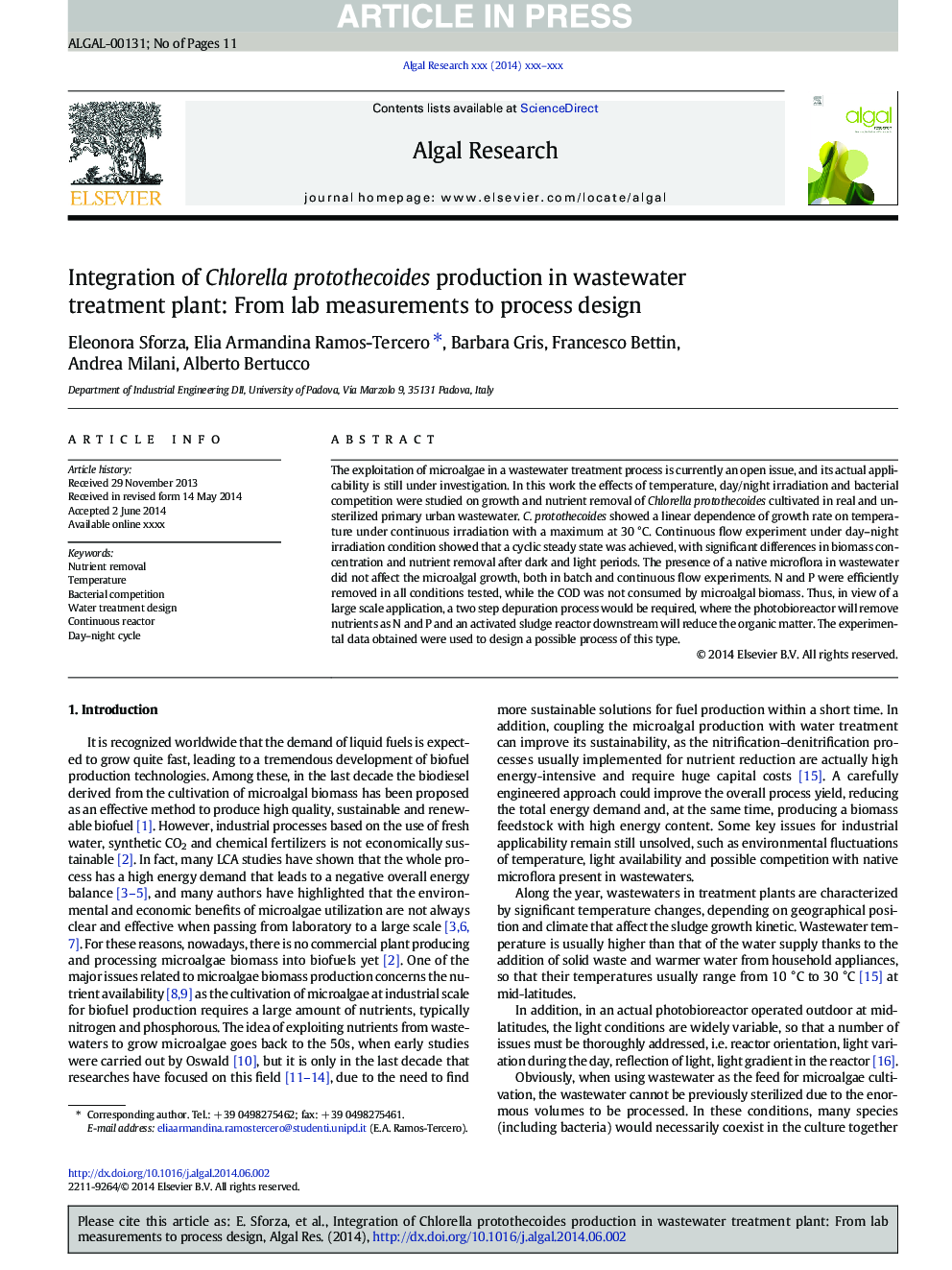| Article ID | Journal | Published Year | Pages | File Type |
|---|---|---|---|---|
| 10687501 | Algal Research | 2014 | 11 Pages |
Abstract
The exploitation of microalgae in a wastewater treatment process is currently an open issue, and its actual applicability is still under investigation. In this work the effects of temperature, day/night irradiation and bacterial competition were studied on growth and nutrient removal of Chlorella protothecoides cultivated in real and unsterilized primary urban wastewater. C. protothecoides showed a linear dependence of growth rate on temperature under continuous irradiation with a maximum at 30 °C. Continuous flow experiment under day-night irradiation condition showed that a cyclic steady state was achieved, with significant differences in biomass concentration and nutrient removal after dark and light periods. The presence of a native microflora in wastewater did not affect the microalgal growth, both in batch and continuous flow experiments. N and P were efficiently removed in all conditions tested, while the COD was not consumed by microalgal biomass. Thus, in view of a large scale application, a two step depuration process would be required, where the photobioreactor will remove nutrients as N and P and an activated sludge reactor downstream will reduce the organic matter. The experimental data obtained were used to design a possible process of this type.
Related Topics
Physical Sciences and Engineering
Energy
Renewable Energy, Sustainability and the Environment
Authors
Eleonora Sforza, Elia Armandina Ramos-Tercero, Barbara Gris, Francesco Bettin, Andrea Milani, Alberto Bertucco,
